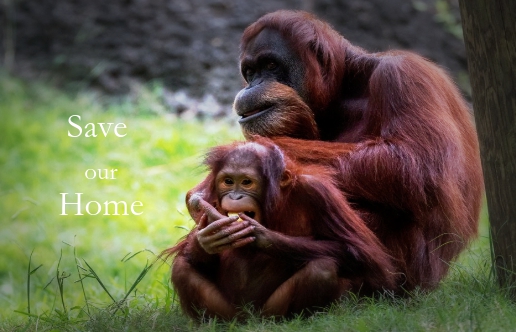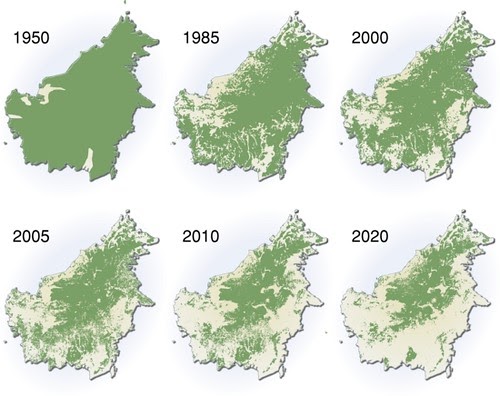
Fire Alert in Borneo
By Fredrick Ernst and Kenneth Lee
A catastrophe is occurring in Borneo: a large debate over the palm oil industry. This industry is the largest source of income for many of the residents of Borneo, a small island nation in the Malay Archipelago. Without this product, many locals would not be able to provide for themselves and their families. On the other hand, the environment of Borneo is being destroyed in order to make space for the production of palm oil. 75% percent of the island was previously covered by rainforests and lush vegetation, but roughly half of it was burnt and logged down for palm tree plantations. These two opposing needs are causing a major debate over what should be done in Borneo in order to stop this tragedy. What are the correct courses of action to take in this situation?
Fires are being caused by companies in order to make more room to plant palm trees for palm oil, which is greatly destroying the forests. Indonesia, Singapore and Malaysia have also been impacted by fires that have destroyed 3,311 square miles of rainforest. Palm trees produce vegetable oil, which is used in many household products. The orangutans, rhinos, elephants and other species of animals that call the rainforest their home are also being affected negatively. Government authorities are using airborne thermal cameras to locate where the fires are in order to open cases and lawsuits against companies engaging in illegal deforestation.

*Diagram above shows the remaining rain forest dwindling away
An alternative for palm oil is to use coffee grounds, locally grown oils, algae, fungi, and yeast. The first process involves extracting the oils in coffee grounds. This is done by mixing the coffee grounds with the solvent hexane and then cooking the mixture at 60°C for 1–2 hours to extract the oils. The hexane is evaporated to leave behind the oils. In the second step, methanol and a catalyst are added to create biodiesel. Glycerol, which is also created as a by-product, has to be separated from the biodiesel. A team of chemical engineers and environmental scientists from Lancaster University in the UK streamlined the process by eliminating the need for solvent-based oil extraction. They mixed coffee grounds with methane and a catalyst to make biodiesel directly. The key was to use the right concentration of sodium hydroxide and adjust the methane-to-oil ratio during production. The methods that industries are using to find alternatives to palm oil are helping to create more populations of endangered species such as orangutans and rhinos. In this way, the rain forests of Borneo can once again become plentiful and an overall ideal environment for different species of animals to sustain life on and repopulate.
Because of this action, we now know that we should avoid palm oil, not support palm oil companies, and use alternatives. To make certain you are not buying palm oil, always make sure to check the ingredients list. We should also help and support animals that were affected by the burning and logging of the trees. Palm oil should also be banned because it is killing animals and makes a huge impact on resources and the habitats.








